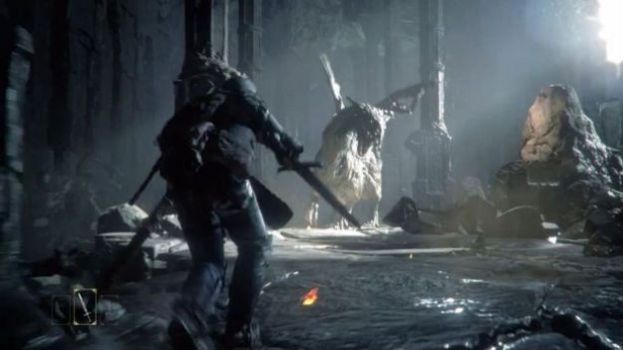
Capcom showed one of the more impressive demos at Sony’s PlayStation 4 unveiling on Feb. 20. Even if it was primarily a target demo, showing off what Capcom expects games using its new Panta Rhei engine to look like, Deep Down was still a splendid looking piece of computer animation. While Capcom’s Yoshinori Ono said on stage that Deep Down was just a working title, the demo did represent a game the publisher is working on in Japan. Some thought that given the success of last year’s Dragon’s Dogma, Deep Down might be a possible sequel, but according to Ono, Deep Down is definitely not a continuation of an existing series.
“We wanted to be free to utilize the PS4’s hardware capabilities and unique services without the constraints of working with an existing IP,” Ono told MCV, “Of course, the development experience we gain will put us in an even better position to bring our existing series to the console in a way that takes full advantage of its hardware and services.”
For two decades now, Capcom has regularly leveraged the release of a new console to develop new intellectual properties. Going back to the original PlayStation, some of Capcom’s earliest games for Sony included Resident Evil and Darkstalkers, new franchises that were later followed up by established series like Mega Man.
Capcom did the same with the PlayStation 2. It was years before Capcom made a Resident Evil for that console, despite the series being so closely associated with Sony’s hardware. Instead, Capcom began funding all new action games like Onimusha and Devil May Cry.
During the last transition, Capcom’s first forays into HD consoles were also originals, though they weren’t as successful as those others. Capcom hit the Xbox 360 first with the Keiji Inafune-produced Lost Planet and Dead Rising. Though both games have spawned stong-selling sequels, neither has performed like Resident Evil or Street Fighter.
Given the sales of Resident Evil 6, it’s clear that Capcom needs new blood in its console line up. Deep Down and the push to develop new series shows positive creative growth for the company.


